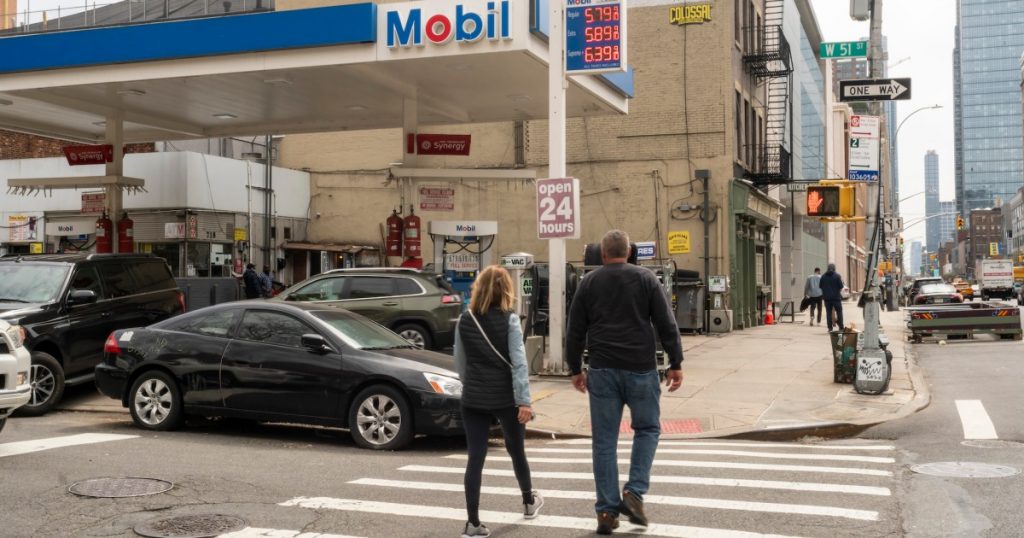While Americans Stare Down a Recession, Oil Companies Are Making Record Profits
An ExxonMobil gas station in Hell’s Kitchen in New York in April.Richard B. Levine/ZUMA
Facts matter: Sign up for the free Mother Jones Daily newsletter. Support our nonprofit reporting. Subscribe to our print magazine.The three largest Western oil companies—Chevron, Exxon, and Shell—made a record $46 billion in total profits last quarter, the Wall Street Journal reports. Exxon alone recorded an all-time high of $17.9 billion in profits during the second quarter, which was more than four times as much as it made during the same period last year.
The news comes after gas prices reached a record high of more than $5 per gallon in mid-June as a result of Russia’s invasion of Ukraine, although the national average has since declined to $4.25 per gallon. Oil companies are banking record profits because of high oil prices, not because they’re producing far more oil and gas. As the Journal explains:
Exxon’s oil and gas production was up about 4% from the same period last year. Chevron’s oil-and-gas production declined globally about 7.4% compared with the same period a year ago, largely due to the end of projects in Thailand and Indonesia, though its production rose in the U.S. by about 3.2%.
President Joe Biden has accused oil companies of profiteering. As he wrote in a letter to oil executives last month, “At a time of war, refinery profit margins well above normal being passed directly onto American families are not acceptable.”
The news about the most recent round of record profits has led to more backlash from Democrats. “Shell broke a record and made $11.5 billion in profits in the last quarter,” Sen. Jeff Merkley (D-Ore.) wrote on Twitter. “That’s why you’re paying more at the pump. The oil companies are ripping Americans off.”
But long-term solutions to high prices at the pump will require real innovation. As my colleague Tom Philpott wrote in March:
Pain relief for Americans reeling from pricey gasoline won’t come from bashing oil refiners or speciously accusing the Democrats of burdening Big Oil with regulation. Eventually, if and when the Ukraine war and the pandemic end, the oil industry will re-enter one of its periodic bust cycles, and gas prices will drop accordingly. In the long run, easing the hardship consumers feel from high gas prices will depend on developing real alternatives to the gas-guzzling car: making cities more dense, better serving them with mass transit, and hastening the transition to electric vehicles.
Some of that could come from the $369 billion in climate and energy spending that Sen. Joe Manchin agreed to this week as part of a deal with Majority Leader Chuck Schumer. Sen. Kyrsten Sinema is still reviewing the proposal.





